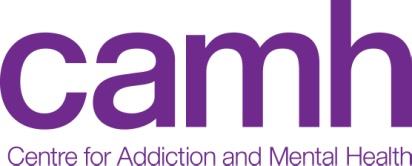
Problem Gambling Awareness Scale (AASIS-GAS)
Non-Confidential Summary
Market Need
Approximately 1 to 2% of the adult population in North America experience severe gambling problems. Among gamblers, impaired awareness of problem and pathological gambling is a well-recognized, but an understudied phenomenon that contributes to the minimization and denial of the need for treatment with devastating clinical and social consequences. Although a variety of treatment interventions for problem gambling are available, fewer than 10% of pathological gamblers seek treatment, and when they do, they have high dropout rates. Impaired awareness of problem gambling, including problem minimization and the failure to recognize the severity of its consequences is identified as one of the principal barriers to help-seeking and treatment adherence. Although clinically relevant, impaired awareness of problem gambling has received relatively less empirical study than other associated features of problem and pathological gambling. Improving impaired awareness of problem gambling may help avoid delays in seeking treatment, as well as improve treatment adherence, clinical outcomes, and well-being of individuals with problem gambling and their families. To accomplish this, a valid, reliable measure is required to accurately assess impaired awareness of problem gambling. The aim was to develop an easy-to-use self-report scale to measure impaired awareness of problem gambling that would have the capability to detect small changes in illness awareness and assess the multidimensionality of insight into illness in this condition.
Technology Description
Our scientists have developed a novel and easy to administer self-report measure of illness awareness in problem and pathological gambling. The measure assesses the core domains of illness awareness, including general illness awareness, accurate attribution of symptoms, awareness of the need for treatment, and awareness of negative consequences. With 10-point Likert scales for each item, this scale has the capacity to detect small changes in illness awareness.
Stage of Development
Investigators are currently validating the scale and conducting tests for reliability. The scale will be validated in English and potentially other languages for wider use. Upon validation, the inventor plans to create an electronic version, which will facilitate data storage for research studies and clinical use.
Advantages
- Specific to the quantitative assessment of impaired illness awareness or illness denial
- A user-friendly tool with the capacity to detect small changes in illness awareness scores with the use of 10-point Likert scales for each item
- Provides a set of questions specific to problem and pathological gambling that are within the niche of understanding patient awareness of their illness
- Offers a screening mechanism to determine which patients are most suitable for medication adherence programs or interventions to enhance illness acceptance and medication adherence.
Business Opportunity
CAMH is leading the development and commercialization of this scale. We are seeking partnerships with pharma, biotech, and hospitals who may be interested in licensing this scale for use in clinical trials and patient assessment.
For more information contact:
Dr. Klara Vichnevetski
Director, Industry Partnerships & Technology Transfer
(416) 595-6056
Centre for Addiction and Mental Health
33 Russell Street, Suite 4039
Toronto, ONT, CDA M5A 2S1
